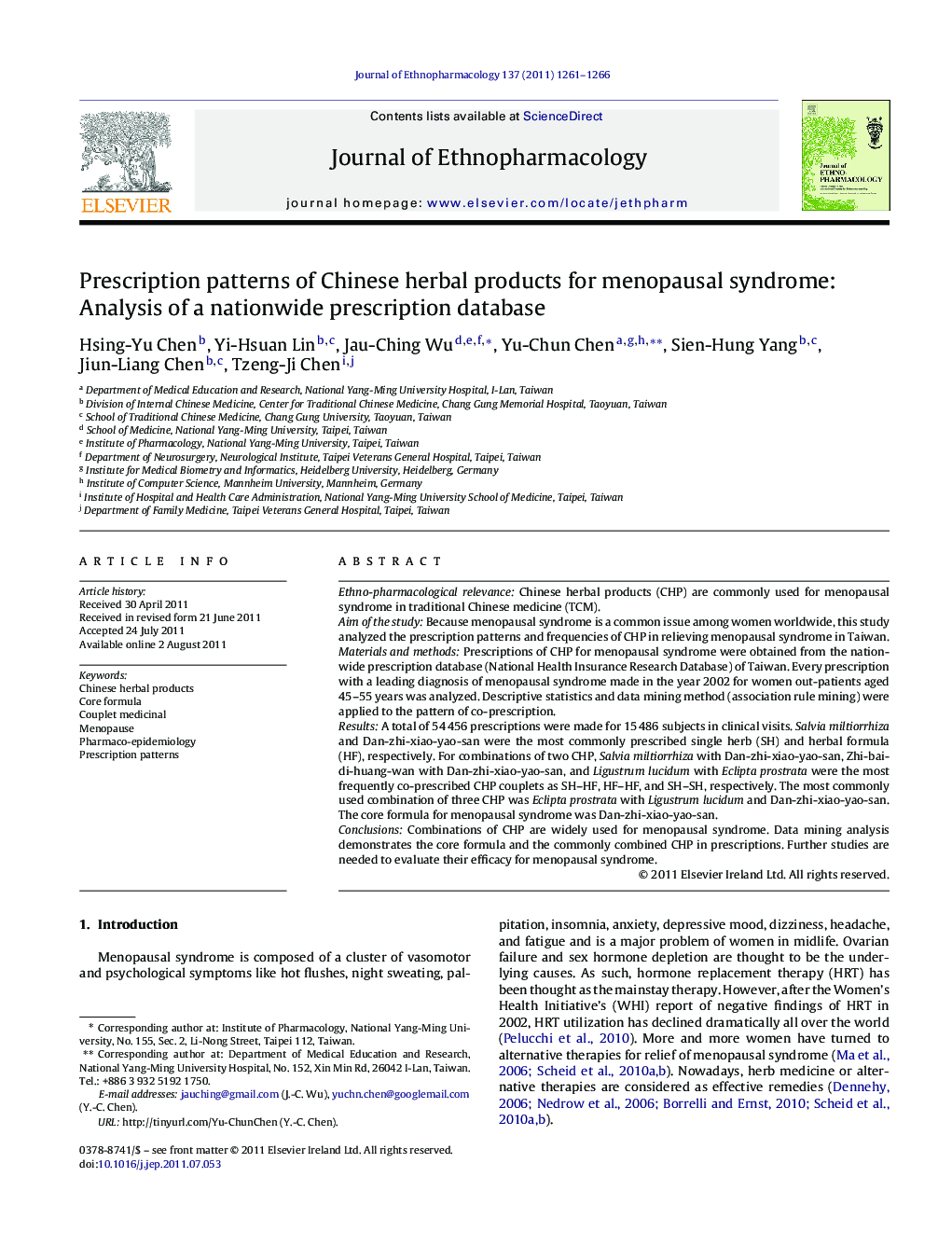| Article ID | Journal | Published Year | Pages | File Type |
|---|---|---|---|---|
| 5839380 | Journal of Ethnopharmacology | 2011 | 6 Pages |
Abstract
Ethno-pharmacological relevanceChinese herbal products (CHP) are commonly used for menopausal syndrome in traditional Chinese medicine (TCM).Aim of the studyBecause menopausal syndrome is a common issue among women worldwide, this study analyzed the prescription patterns and frequencies of CHP in relieving menopausal syndrome in Taiwan.Materials and methodsPrescriptions of CHP for menopausal syndrome were obtained from the nationwide prescription database (National Health Insurance Research Database) of Taiwan. Every prescription with a leading diagnosis of menopausal syndrome made in the year 2002 for women out-patients aged 45-55 years was analyzed. Descriptive statistics and data mining method (association rule mining) were applied to the pattern of co-prescription.ResultsA total of 54Â 456 prescriptions were made for 15Â 486 subjects in clinical visits. Salvia miltiorrhiza and Dan-zhi-xiao-yao-san were the most commonly prescribed single herb (SH) and herbal formula (HF), respectively. For combinations of two CHP, Salvia miltiorrhiza with Dan-zhi-xiao-yao-san, Zhi-bai-di-huang-wan with Dan-zhi-xiao-yao-san, and Ligustrum lucidum with Eclipta prostrata were the most frequently co-prescribed CHP couplets as SH-HF, HF-HF, and SH-SH, respectively. The most commonly used combination of three CHP was Eclipta prostrata with Ligustrum lucidum and Dan-zhi-xiao-yao-san. The core formula for menopausal syndrome was Dan-zhi-xiao-yao-san.ConclusionsCombinations of CHP are widely used for menopausal syndrome. Data mining analysis demonstrates the core formula and the commonly combined CHP in prescriptions. Further studies are needed to evaluate their efficacy for menopausal syndrome.
Related Topics
Health Sciences
Pharmacology, Toxicology and Pharmaceutical Science
Pharmacology
Authors
Hsing-Yu Chen, Yi-Hsuan Lin, Jau-Ching Wu, Yu-Chun Chen, Sien-Hung Yang, Jiun-Liang Chen, Tzeng-Ji Chen,
